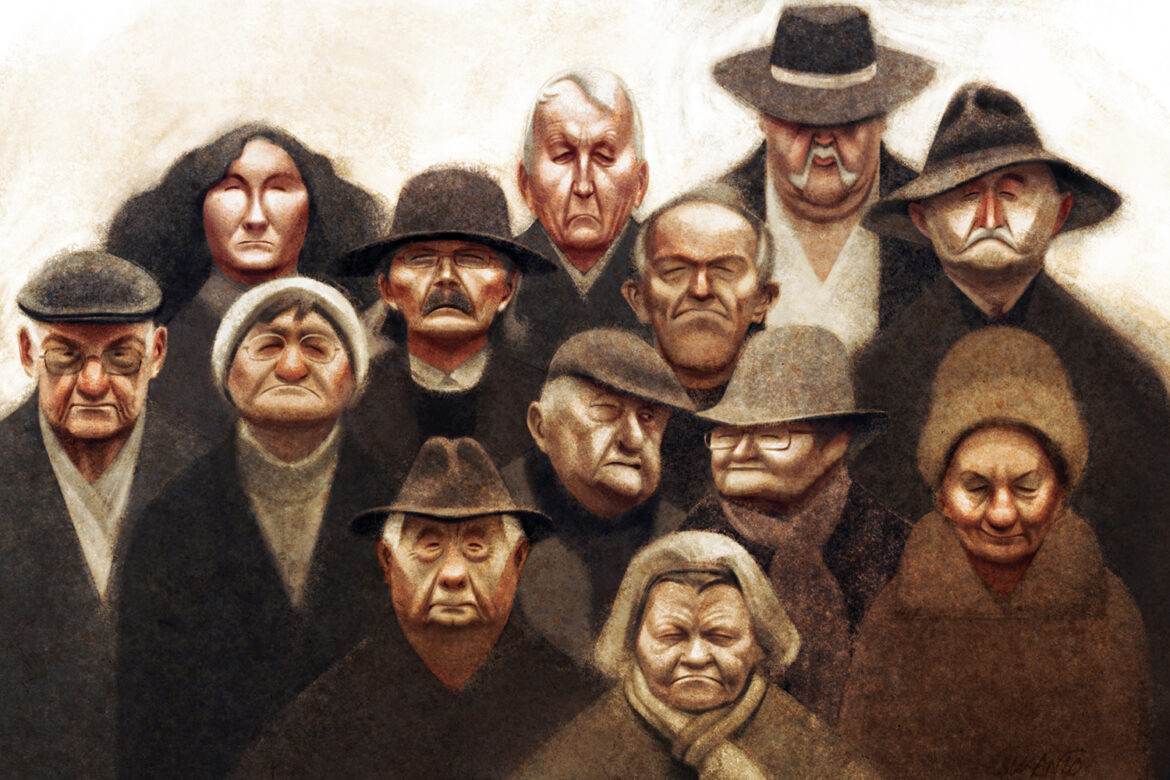Right-wing populists and autocrats do not accept defeat. Challenged by reality, they clamp down—their position is rigid, very often averse to even the slightest possibility of change. Truth has been devalued, facts are treated as opinion, those who possess knowledge and expertise are treated with contempt. We live in an age of rampant anti-intellectualism, where the divisions on social issues are widening instead of narrowing. Consensus has never been further away, as the divisions on social issues show, ranging from equality to freedom of speech and the press to racism to xenophobia.
The Man Who Would Be King
This has been illustrated full well over the last month. Look to the USA. After months of sowing doubt about mail-in voting, Trump lost because of it. He has not conceded—and he never will. It’s likely he believes the baseless accusations he spouts; populists and autocrats are ever prone to the worst bouts of paranoia. If the political crisis in Belarus has hammered a point home, it is that no would-be autocrat is willing to go quietly into the night. Even if Trump himself is aware of reality, his rhetoric has made certain that a sizeable number of the seventy-three million Americans, who cast their votes for him, will never accept Joseph Biden as their legitimate president.

Seventy-three million. That is the number of souls who have voiced unconditional support for the conduit of the United States’ forty-fifth president. For the strongman whose approach has placed loyalty first, second, and third, and made competence not even a necessity. This approach has flourished on all levels of Trump’s White House, decreasing America’s prestige in the eyes of its old allies, while encouraging others of Trump’s ilk––the elected despots who lead ever more “illiberal states,” if we use the term Hungary’s Viktor Orban employed some years back.
America’s Favourite Strongman
Orban himself has much to teach us about control, more even than Trump. While one flaunts his inexperience in public office, the other is an old hand at politics. Following the European Union’s attempt to rein in Hungary and Poland’s “waning of democracies” via a rule of law mechanism, both countries’ leaders have vetoed the EU’s budget for the next seven years—a move that might very well bring about a full-blown political crisis in the bloc. It would come as no surprise if the Union blinks before Orban does—the individual member-states of the EU are desperate for the financial relief this new budget will provide them, to deal with the aftermath of the coronavirus.

Orban has used every excuse he can to centralise authority on his own person; his popularity has suffered little for it. He has curtailed judicial powers and independence, has blamed many of the issues that plague the country on outside influence, most commonly George Soros—who has long been a political foe and critic of his—and immigrants, including when the coronavirus first reached the country. Orban continues to be viewed as a hero, in the highest echelons of the European Union but elsewhere, too; his past accomplishments are compelling. There is ample reason why Viktor Orban has been described as “the American right’s favourite strongman”. He has shown a capacity for using any crisis to his ultimate benefit—something the current American president has attempted to emulate, to mixed results.
For the “elected despots” of the European Union, politicking has proven thicker than the blood of those who have viewpoints opposing their own.
His Polish counterpart, Jarosław Kaczyński, is no different. Rather than take a step back from the controversial abortion law that sparked the “Women’s Strike”, Kaczyński’s party has used these protests to draw a line in the sand, polarizing Polish society and enervating the Polish conservatives by painting the conflict not as one against the law itself but rather, as an attack on the Catholic church. The gall of another member of the ruling party PiS (Law and Justice) in “likening the red lightning symbol of the protests to the runes of Nazi Germany’s SS forces” shows the extent to which PiS is willing to stoke the flames of social strife.
For the “elected despots” of the European Union, politicking has proven thicker than the blood of those who have viewpoints opposing their own. The overall theme is the same: They are all nationalists quick to point a finger of blame, unwilling to backtrack. They are—unlike Trump, who ran as one—economic populists, which is where the vast amount of their support comes from. Peter Beinart writes for the NYRB:
“In 2019, Poland’s xenophobic and homophobic Law and Justice party won a dominant election victory in large measure because of its immensely popular payouts to Polish families, which, according to the World Bank, dramatically reduced child poverty. (Law and Justice’s popularity has fallen since then as many Poles have revolted against its draconian efforts to outlaw abortion.) In Hungary, Viktor Orbán has launched a New Deal-style public works program that gives hundreds of thousands of Hungarians government jobs.”
These are social policies that earn no small amount of goodwill, difficult to break despite raising discontent. And—as the Polish ruling party is all too willing to prove—social cohesion is not high in the list of priorities for the democratically elected despots, not when they hold onto the firm belief that they can energize a large enough percent of their populations to continue being reelected to office.
“The people” is not as inclusive a label as we might think; in the eyes of a caudillo, this concept extends only to those who are firm in their support. The opposition is the enemy—this lesson, at least, Trump learned well and early.
Related articles:
Will the Refugee Crisis be the Downfall of the EU and its Ideals?
Photo credits
Trump by geralt No attribution required
Viktor Orban by Łukasz Dawidziu CC BY-NC-ND 4.0
People in Groups by Sukanto DebnathlCC BY-NC-ND 4.0










